Biochemist Wong Chi-huey (翁啟惠) has received a Chemical Pioneer Award for his outstanding contributions in the field of chemistry, Academia Sinica said in a statement yesterday.
The American Institute of Chemistry, a non-profit aimed at advancing chemical science, on March 31 announced that Wong and Alison Butler, a University of California chemistry professor, were this year’s recipients of its annual award.
Wong, who was president of Academia Sinica from 2006 to 2016, is a Scripps family chair professor in the Department of Chemistry at the Scripps Research Institute in San Diego and a research fellow at Academia Sinica’s Genomics Research Center.
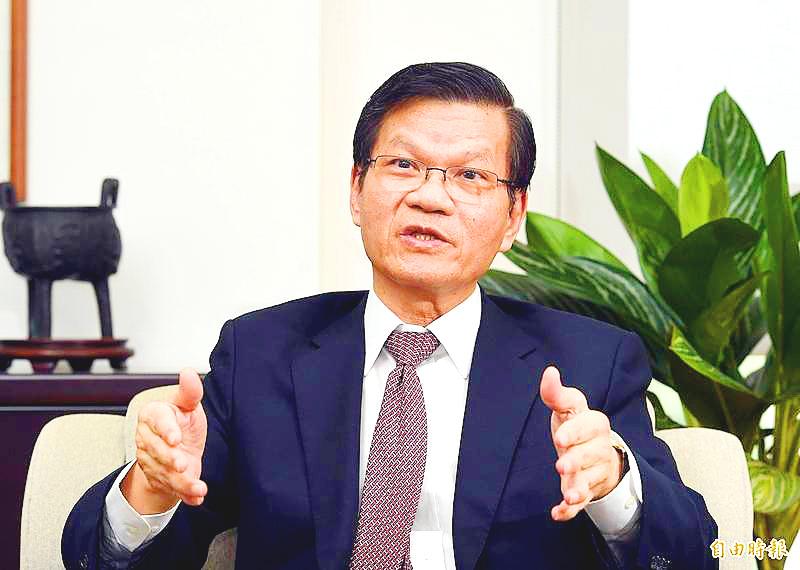
Photo: Fang Pin-chao, Taipei Times
First presented in 1966, the Chemical Pioneer Award recognizes chemists or chemical engineers who have made outstanding contributions that have had a major impact on advances in chemical science and/or the chemical profession, the Institute of Chemistry said.
Wong was the first scientist to develop innovative chemoenzymatic methods, including the automated synthesis of oligosaccharides and glycoproteins, which are aimed at developing cancer vaccines, sugar chips, and antiviral and antimicrobial agents, Academia Sinica said.
The latest honor adds to a long list of awards that Wong has received, including the Welch Award in Chemistry from the US-based Welch Foundation last year and the UK-based Royal Society of Chemistry’s Robert Robinson Award.
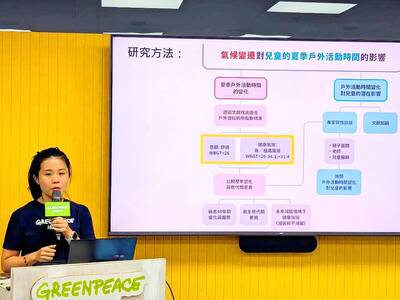
The government should improve children’s outdoor spaces and accelerate carbon reduction programs, as the risk of heat-related injury due to high summer temperatures rises each year, Greenpeace told a news conference yesterday. Greenpeace examined summer temperatures in Taipei, New Taipei City, Taoyuan, Hsinchu City, Taichung, Tainan and Kaohsiung to determine the effects of high temperatures and climate change on children’s outdoor activities, citing data garnered by China Medical University, which defines a wet-bulb globe temperature (WBGT) of 29°C or higher as posing the risk of heat-related injury. According to the Central Weather Administration, WBGT, commonly referred to as the heat index, estimates
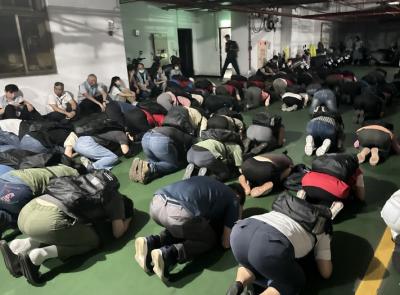
Taipei and other northern cities are to host air-raid drills from 1:30pm to 2pm tomorrow as part of urban resilience drills held alongside the Han Kuang exercises, Taiwan’s largest annual military exercises. Taipei, New Taipei City, Keelung, Taoyuan, Yilan County, Hsinchu City and Hsinchu County are to hold the annual Wanan air defense exercise tomorrow, following similar drills held in central and southern Taiwan yesterday and today respectively. The Taipei Mass Rapid Transit (MRT) and Maokong Gondola are to run as usual, although stations and passenger parking lots would have an “entry only, no exit” policy once air raid sirens sound, Taipei
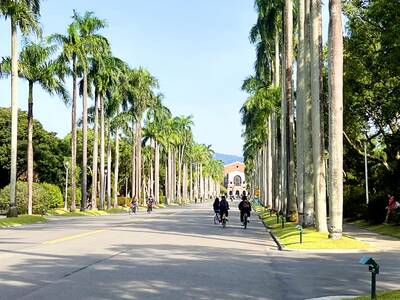
Taipei placed 14th in the Quacquarelli Symonds (QS) Best Student Cities 2026 list, its highest ever, according to results released yesterday. With an overall score of 89.1, the city climbed 12 places from the previous year, surpassing its previous best ranking of 17th in 2019. Taipei is “one of Asia’s leading higher-education hubs,” with strong employer activity scores and students “enjoying their experience of the city and often keen to stay after graduation,” a QS staff writer said. In addition to Taipei, Hsinchu (71st), Tainan (92nd), Taichung (113th) and Taoyuan (130th) also made QS’ list of the top 150 student cities. Hsinchu showed the
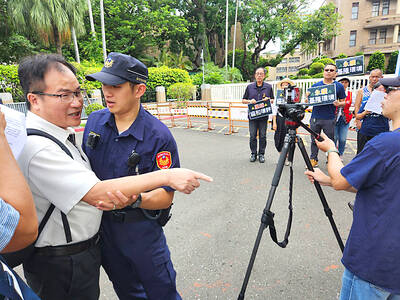
Environmental groups yesterday filed an appeal with the Executive Yuan, seeking to revoke the environmental impact assessment (EIA) conditionally approved in February for the Hsieh-ho Power Plant’s planned fourth liquefied natural gas (LNG) receiving station off the coast of Keelung. The appeal was filed jointly by the Protect Waimushan Seashore Action Group, the Wild at Heart Legal Defense Association and the Keelung City Taiwan Head Cultural Association, which together held a news conference outside the Executive Yuan in Taipei. Explaining the reasons for the appeal, Wang Hsing-chih (王醒之) of the Protect Waimushan Seashore Action Group said that the EIA failed to address